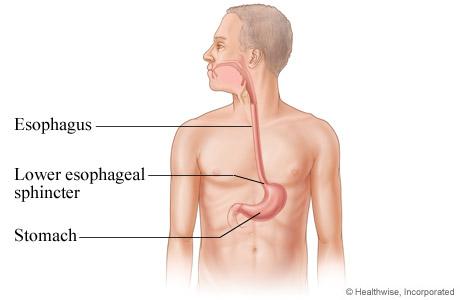Esophageal Cancer

Driven by obesity and acid reflux, esophageal cancer has become the fastest rising cancer in Caucasian men in the United States. The thoracic oncologists and gastroenterologists at the Baylor St. Luke's Medical Center Dan L Duncan Comprehensive Cancer Center specialize in the prevention, diagnosis and treatment of esophageal cancer. The Esophageal Cancer Center offers a comprehensive array of services that are tailored to address your individual needs. Our top-ranked oncologists, gastroenterologists, surgeons, imaging experts and nurses, guide you through the treatment options available. If you have questions or want to make an appointment, call (713) 798-2262.
Customized Treatment Plans for Esophageal Cancer
Cancers of the esophagus are uniquely challenging to treat, for two important reasons. First, esophageal cancers are relatively uncommon in the United States, and thus many clinicians will not have experience treating individuals with these tumors with the same frequency as they do other tumor types. Second, treatment of these diseases requires a complex coordination of care between four different doctors: a thoracic surgeon, gastroenterologist, radiation oncologist, and medical oncologist.
The esophageal cancer group at the NCI-designated Dan L Duncan Comprehensive Cancer Center has put together a focused team of specialists who provide coordinated, innovative services for prevention, detection and treatment for esophageal cancer. Members of the Esophageal Cancer Center work in concert to create an individualized treatment plan upfront, so that the right combination and sequence of therapies can be recommended to ensure the best possible outcome you, the patient.
What You Need to Know
The esophagus is a muscular tube that moves food and liquids from your mouth to your stomach. In esophageal cancer, cancer starts on the inner lining of the esophagus and spreads outwards through the muscular layers of the esophagus. The most common types of esophageal cancer are squamous cell carcinoma and adenocarcinoma.
Risk Factors and Symptoms for Esophageal Cancer
The American Cancer Society’s estimates about 16,940 new esophageal cancer cases diagnosed (13,360 in men and 3,580 in women) in 2017.
Aging, smoking, heavy alcohol use, and Barrett's esophagus can increase the risk of esophageal cancer. Talk with your doctor if you think you may be at risk or if you recognize any signs and symptoms of esophageal cancer, which includes weight loss, difficulty swallowing, cough or heartburn.
Diagnostic Techniques
Esophageal cancer can be diagnosed through an imaging test (CT or CAT, MRI or PET scans), a barium swallow or an endoscopy exam.
If one of these tests determines further testing, your doctor will order a biopsy. During a biopsy your doctor will examine tissue removed from different areas of the esophagus. Once biopsy results are available, your doctor will discuss treatment options with you and make a personalized treatment plan for you.
Treatment
Treatment of esophageal cancer requires a complex coordination of care between four different doctors: a thoracic surgeon, gastroenterologist, radiation oncologist and medical oncologist. Our doctors will work together with each other to give you an individualized treatment plan upfront. Treatments can include surgery, chemotherapy, targeted therapy and endoscopic submucosal dissection of the tumor.
Patients also have access to National Cancer Institute-sponsored esophageal cancer clinical trials.








